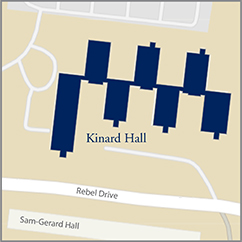Special Consideration for Children
Children often leave assessments with a boost in self-esteem, having been praised and encouraged for their hard work and persistence. Most children thrive on the completion of challenging tasks, which range from problems they can solve easily to more difficult activities. Children also enjoy the interaction with an attentive and encouraging adult. Many of the activities are game-like, and there are breaks for a snack, exercise, and checking in with caregivers if necessary.
The child’s caregiver knows best how to tell the child what to expect of the visit so it will be pleasant and comfortable. Some children need reassurance, others do not. We suggest, however, that the caregiver neither tell the child that the object of the visit is to ‘play’. Often, if they are told that the purpose is to ‘take tests’, it may set up unrealistic expectations or cause unnessary anxiety.
The child should expect to be working with a person who likes children and who has interesting activities to do (mostly at a table). He or she can also expect the caregiver to be nearby and available for a visit if needed. Older children and adolescents, particularly those with previous testing experience, can be approached with more straightforward information about the purpose of the evaluation.
